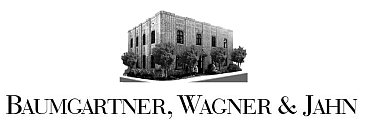In Washington, specific rules apply to accidents at self-service stores. A self-service store is a retail business where customers help themselves to the products they wish to purchase. Examples include most grocery stores, convenience stores, department stores, home improvement stores, and food buffets. Frequent causes of injuries in self-service stores include slip and falls resulting from liquids on the floor, and injuries from products falling from displays. Different requirements for establishing a business proprietors’ liability for accidents at self-service stores apply, depending on what caused the accident and where the accident took place in the store.
Notice Generally Required
The general rule in Washington is that to be held liable for an accident on its premises, a possessor of land must have notice of the unsafe condition that caused the accident. This notice may be actual, such as when an employee is aware of the hazard. The notice may also be constructive, if the hazard had existed long enough that the store in the exercise of reasonable care should have discovered and done something about it. Morton v. Lee, 75 Wn.2d at 393 (1969). The store’s housekeeping procedures, such as how often and when they last inspected the area of the hazard, are looked at in determining constructive notice. Evidence concerning the hazard itself, such as a dark colored banana peel, may also be relevant. Presnell v. Safeway Stores, Inc., 60 Wn.2d 671 (1962).
Hazards Unique to Self-Service Stores
In Pimentel v. Roundup Co., 100 Wn.2d 39 (1983), the Washington State Supreme Court held that, where the existence of a specific unsafe condition is continuous or foreseeably inherent in the method of operation of the business, the plaintiff does not have to establish constructive notice by showing how long the specific hazard causing the plaintiff’s injury existed. For example, in the produce section of a self-service grocery store the hazard of slippery substances on the floor is apparent, so actual or constructive notice of this hazard need not be shown. In O’Donnell v. Zupan Enterprises, Inc., 107 Wn.App. 854 (2001), the Washington Court of Appeals held that the check-out aisle of a grocery store is a self-service area of the store, charging the proprietor of knowledge of the risks inherent in having customers unload their groceries onto conveyor belts, such as produce falling on the floor in the area.
However, the Pimentel exception to the notice requirement is limited. The hazard must arise out of a store’s self-service mode of operation for the Pimentel exception to apply. In Wiltse v. Albertons’s Inc., 116 Wn.2d 452 (1991), a customer slipped in water that came from a hole in the roof of a self-service grocery store. The Washington State Supreme Court held the customer still had to show the store had actual or constructive notice of the leak in the roof, because the accident did not arise out of the store’s self-service mode of operation. In Carlyle v. Safeway Stores, Inc., 78 Wn.App. 272 (1995), a customer slipped and fell in spilled shampoo while reaching for a container of coffee in the coffee section of the store. The shampoo section was several aisles away, but a bottle of shampoo with its cap’s pop-top open was found under the bottom shelf in the coffee section. The Court held the Pimental exception did not apply, because spilled shampoo in the coffee section was not a hazard inherent in the grocery store’s self-service operations.
The Pimentel exception to the notice requirement for accidents at self-service stores only applies to areas of the store in which customers serve themselves. In Coleman v. Ernst Home Center, Inc., 70 Wn.App. 213 (1993), the Washington Court of Appeals ruled that a customer who tripped in a hole in carpet next to the entrance of the self-service home improvement center still had to show the store’s employees had actual or constructive notice of the hole, because the entryway carpeting was not part of the store’s self-service area. In Tavai v. Walmart Stores, Inc., 176 Wn.App. 122 (2013), a customer slipped on a wet floor that was about 15 feet from a check-out counter. The Court affirmed dismissal of the case, because the accident did not occur in a self-service area of the store and the customer could not show the store employees had actual or constructive notice of the wet floor.
